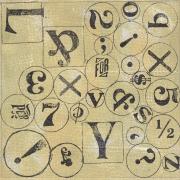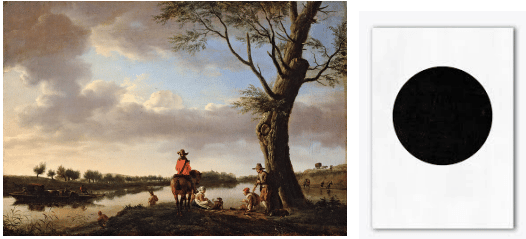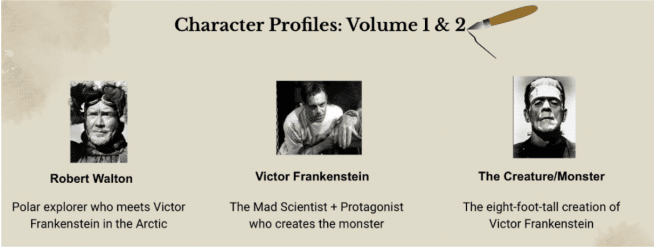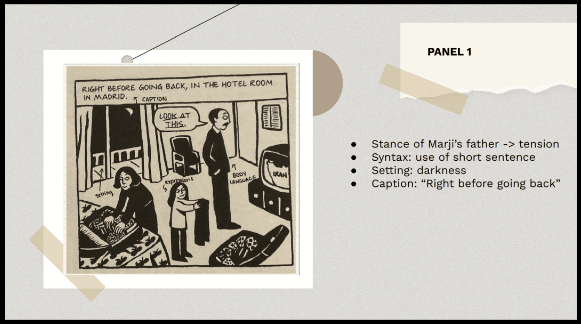Higher English Help
Useful tips for your english revision., critical essay.

As part of your exam, you’ll have to write two critical essays. Each is worth twenty-five marks, and you get one and a half hours in total, or forty-five minutes each. That’s not a long time. The secret to writing a good essay in this time is planning.
The best way to write an essay at Higher level is to approach it ‘thematically’. This means that the key themes in the text should form the basis of your paragraphs. This will help you to analyse the text, rather than just describing it. Think about it this way – if someone asked you to explain why one football team beat another, and you simply explained what happened on a minute-by-minute basis, that wouldn’t be a very good answer. Instead, if you explained key aspects in which Team A was better than Team B, you would be more concise and give a better answer. That is the thematic approach.
So, when you come to plan your essay, you should aim to write three or four body paragraphs (not including the introduction and conclusion) that are each based around relevant themes. As part of your revision, you should make a ‘spider chart’ of key themes in the text, which you can then apply to the question.There are probably five or six key themes of each text (have a look at the ‘Help with Texts’) section to help you identify the key themes.
To give you an example, in 2012, one of the questions said:

If you were answering using “Dr. Jekyll and Mr. Hyde” as your text, your three key themes might be: 1) The battle between good and evil in humans; 2) Addiction and the loss of control; 3) The contrast between Science and Morality.
Each of these paragraphs will allow you to explore different themes within the text, which means you can focus on analysis of the story, rather than simply describing what’s going on.
The ‘critical’ aspect of a critical essay is the analysis. You should be able to say why the author chose a particular word, event or character. Thinking about the message behind the text is a good place to start. Also, have a look at the author’s biography. Usually their own life experiences influence their writing. For example, Arthur Miller wrote “The Crucible” as a direct allegory of his own experiences of the Communist ‘witchhunts’ of 1950s America.
When it comes to writing your essays in the exam, the best way to divide your time is as follows:
10 minutes planning,
30 minutes writing (6 minutes per paragraph),
5 minutes checking your work.
Obviously, this doesn’t give you a lot of time to actually write your paragraphs. This will force you to be straight to the point (if you are someone who waffles, then the short writing time is a blessing in disguise). Keep your sentences short when you are writing. This will help you to be direct, and to keep you focused on the question at hand. Try reading past essays out loud to yourself, and seeing where the sentences are too long.

You can keep your topic sentences in particular very short. In fact, it’s best to make them straight to the point. Using the “Jekyll and Hyde” example above, the topic sentence for the first paragraph could be: “The battle between Jekyll and Hyde is symbolic of the battle between good and evil in humans.” This is direct, and shows the reader exactly what you will talk about in the paragraph.
Make sure that you finish each paragraph with a one sentence mini-conclusion that links back to the question. Usually the question is split into two, and the finish of the sentence should refer to the second part of the question. So, using the “Jekyll and Hyde” example, the final sentence of the first paragraph could be: “Jekyll’s growing realisation that he cannot control Hyde forces him to isolate himself, and shows that Jekyll has come to regret his earlier immoral decisions.” Writing a one sentence mini-conclusion will help you when it comes to writing your final conclusions, and will also keep your work focused on the question.
In your paragraphs, the best sentence structure is the P.E.A. approach. This stands for Point, Evidence, and Analysis. Make your point, then back it up with a quotation or an example from the text, and then explain why this is important or relevant to the question. You can practice this simple approach by using the following framework in your revision:
Point – One of the key themes in the text is…
Evidence – This is shown when…
Analysis – This highlights/emphasises….
Although it is best not to use these exact phrases every time, this does give you an idea of how you should approach the content of your paragraphs.
The Introduction

The format of your introduction should be:
1) A synoptic statement about the text (i.e. explaining when it was written, who wrote it, and a one sentence summary of the plot).
2) An explanation of the relevance of the question to the text. For example, using the sample question above, you should say why Dr. Jekyll is good to talk about as to a character who has a changing view of himself.
3) Identify the key themes of the text. In reality, this is you explaining what your paragraphs are going to be. Instead of saying “In this essay I will talk about…”, say “The most important themes are…” and then mention what your paragraphs will be. Be confident in what you are writing!
4) Try and draw your themes together into one ‘mega theme’. This will be the final sentence of your introduction, and so should be short and snappy (to get the reader’s attention). There should be an underlying point that links all of your themes together. For example, using the “Dr. Jekyll and Mr. Hyde” question above, the three paragraphs are all linked by the idea of man’s internal conflict, and the ongoing battle between being ethical and fulfilling desires. This would be the ‘mega theme’.
The Conclusion
Conclusions are really very simple, although a number of students don’t even write one. If you’ve planned your time properly, then you will have time to conclude your argument. Not only is this critical for getting good marks for structuring, but it will allow you to actually answer the question. The format of the conclusion should be:
1) Spend one sentence summing up each of the paragraphs you wrote. The mini-conclusions you wrote will help with this.
2) Draw these all together again using your mega theme.
3) Your final sentence of the entire essay should give a direct answer to the question. Look at how the question is worded and use that to help you phrase your answer. Think about the final sentence as a one-sentence ‘in a nutshell’ answer. An examiner should be able to read just your last sentence to get a sense of what you are arguing. For the “Jekyll and Hyde” example, the final sentence could be: “Ultimately, Jekyll’s changing relationship with Hyde is an allegory for man’s internal conflict, and Stevenson’s belief in man’s capacity for both good and evil.”
Lessons to take away
Work on a ‘spider diagram’ of the key themes in your texts.
Keep your sentences short/read practice essays out loud to yourself.
Remember P.E.A.
Practice writing 10 minute plans.

Share this:
Leave a comment cancel reply.

- Already have a WordPress.com account? Log in now.
- Subscribe Subscribed
- Copy shortlink
- Report this content
- View post in Reader
- Manage subscriptions
- Collapse this bar
IB English HLE Explained
Free introductory guide to IB English Higher Level Essay (HLE) by IB44 and IB45 graduates Lareina Shen and Saesha Grover.
In this guide, LitLearn students (and 2022 IB grads!) Lareina Shen and Saesha Grover share their wisdom on how to conquer the IB English Higher Level Essay (HLE).
Lareina achieved an IB44, and Saesha achieved an IB45 as well as the coveted IB7 in IB English Literature HL, so you are in safe hands.
Meet your instructor Jackson Huang, Founder of LitLearn. His mission is to make IB English as pain-free as possible with fun, practical lessons. Jackson scored an IB45 and was accepted to Harvard, Amherst, Williams Colleges, and full scholarships to University of Melbourne & Queensland.

What is IB English HLE?
The HL Essay (HLE) is a 1200-1500 word essay about a text studied in the IB English course. For Lang Lit, the work you choose to analyze can be literary or non-literary, but for IB English Literature the text must be literary.
The HLE will make up 25% of your final IB English HL grade , and it is graded externally. You must choose your own line of inquiry (i.e. a question that you will answer in your HLE–more on this later).
How do I choose my text for HLE?
Do NOT choose the “easiest” text. Life is always better when you do things you're interested in, and that advice applies to the HLE, too. Choose the literary / non-literary work that interests you the most, so that you can (semi?)-enjoy the HLE planning and writing process.
You could start by thinking of a theme that you find particularly interesting and determining which text studied in class demonstrates this theme well.
How do I choose my line of inquiry for HLE?
The line of inquiry is the core question that you will answer in your essay. A quick example might be:
"To what extent is masculinity undermined by the characterisation of Little Thomas?"
Now, it's your job to forge your destiny and come up with your own line of inquiry. But it's not a complete free-for all! There are rules. The main rule is that your line of inquiry must fall under one of the 7 main concepts of IB English (see below for a quick summary).
This summary is vague, so let's go in-depth on a couple of these concepts to really show you what you should be doing in the HLE.
Identity is what makes you, YOU. Here are some questions the concern your own personal identity:
- What is your favourite colour? And why is it your favourite?
- What makes you different from others? Why do you think these qualities came to be?
- How would someone describe you in three words?
Now apply this same logic to characters within your text.
- How would you describe this character in three words?
- How do their actions within a text influence your view of their identity?
- How has the author crafted this character to make you view the character in a certain way?
Let's take a look at a concrete example of how we might choose evidence and quotes for a HLE on cultural identity. This example is based on a Vietnamese work in translation “Ru” by author Kim Thúy. For context, “Ru” is an autobiographical fictional account which explores Kim Thúy's move from Vietnam to Canada as an immigrant and her consequent struggles. The structure of her novel is largely lyrical and poetic.
Let's look at a section from her novel that may help us come up with an essay idea based on the concept of Identity. When she returns to Vietnam, she attends a restaurant, however this becomes a major awakening for her in terms of how she views her own personal identity. Kim narrates within her novel:
The first time I carried a briefcase, the first time I went to a restaurant school for young adults in Hanoi, wearing heels and a straight skirt, the waiter for my table didn't understand why I was speaking Vietnamese with him. Page 77, Rú
This is a perfect quote for the Identity concept. Can you see why? Let's think through it together…
Why would the waiter be confused if Kim, a “briefcase”-carrying individual in “heels” and a “straight skirt”, was speaking Vietnamese with him?
What does being “Vietnamese” look like to the waiter? Why does Kim not conform to his expectation? Was it perhaps due to what she was wearing?
Now, if we look at the section which follows this in the novel, we are able to see the impact this had on the character of Kim's sense of identity.
the young waiter reminded me that I couldn't have everything, that I no longer had the right to declare I was Vietnamese because I no longer had their fragility, their uncertainty, their fears. And he was right to remind me. Page 77, Rú
Here, we can clearly see that this character is now questioning her Vietnamese cultural identity. This is just one example that demonstrates the concept of Identity.
Culture seems to be this confusing thing. Does it have to do with religion? Race? Beliefs? What does it mean? Does the monster from Frankenstein fit into a certain culture?
The easiest way to put it is this: Culture is the way someone lives. It is their “way of life.” Think of it as an umbrella term. “Culture” can include so many different things; the list just goes on, for example religion, values, customs, beliefs, cuisine, etc.
Now think, how would I form an essay from this concept?
- When you read a text in class, you will notice that authors let you form an opinion on the culture of certain characters or groups within a text, but how is this done?
- How does the author represent the culture of a certain community?
- What types of patterns in daily routines are discussed?
It seems odd writing an essay about “creativity” because… like… how can anyone definitively say what ‘counts' as being creative–or not? When I say the word creativity , I think of new inventions, or maybe those weird and wacky art installations living inside those ‘modern art' museums. But hey, what's creative to me might not be creative to you!

When formulating a HLE on the concept of creativity we have two main pointers for you. Look for:
- Interesting + Unique techniques or literary devices used within a text by the author. You can learn more in the Learn Analysis section of LitLearn.
- Recurring stylistic choices by the author
Now, for this concept, let's look at how we might select supportive evidence and quotations for a HLE on creativity within the narrative style of author Mary Shelley in “Frankenstein”. The narrative style uses epistolary narration . This is a narrative technique in which a story is told through letters. This was something that I found both interesting and recurring within Frankenstein, which I believe worked to create a personal touch within the novel.
Additionally, Mary Shelley allows different characters to narrate Frankenstein during different volumes. Let's investigate this! I have written out different character profiles of the narrators below:

These 3 characters, each relate a part of the novel Frankenstein. This is an example of a creative authorial choice that allows us, as readers to explore different points of view within the text. This is just one example of a creative aspect of a text which you can analyze for your HLE.
Representation
Representation is all about how something is portrayed, conveyed, shown, described, illustrated, depicted . There are many different things that can be ‘represented' within a text, and it doesn't have to be tangible.
For instance, you can look at how a belief, idea or attitude is depicted within a text through different characters or devices.
Again, let's explore a concrete example to make things clear: this time the graphic novel “Persepolis”. We'll consider an HLE on how a text represents the impact of political turmoil on society .
Chapter 10 of “Persepolis” highlights societal changes occurring due to the Iranian Revolution. The panels below list the authorial choices relevant to the negative representation of political change in a society. When looking at the techniques highlighted in the slides below, think about how you feel when you look at the panels below. Can you sense a more positive or negative feeling?

Cool, but what do we do to turn all this into an actual HL essay? Here is a sample response. The introduction might begin like this:
In the captivating graphic novel “Persepolis,” the author Marjane Satrapi explores the social and political impacts of the Iranian revolution. In particular, Satrapi conveys a disapproving viewpoint on political turmoil within the text. Throughout the graphic novel, Satrapi carefully represents how social isolation, hypocrisy and confusion is experienced by a young girl living in Tehran, as a result of political turmoil. Example HLE Introduction
Then, in a body paragraph, on one of the key ideas mentioned above, we could analyze the different literary techniques. For example, Panel 1 is a great representation of the experience of confusion in the midst of political turmoil:
Marji is the younger girl pictured in the panels above. While her parents appear quite concerned by the news on the TV, she appears to not be in full comprehension of the cause for their distress. This is demonstrated by the visual imagery and dialogue, in panel 7, for instance, if you observe the facial expressions by each of the characters. Example of analysis in body paragraph
This is just a short example from one particular text. To help you unpack any text, try look for the following when analyzing chapter to chapter:
- What is the main idea of the chapter?
- Why did the author write it? What purpose does it serve?
- What do you believe is the overarching importance of the passage?
Brainstorming Tips
If you're having trouble picking your text and line of inquiry, then use this simple 20-minute process to brainstorm potential questions for your HLE:
- For each text / non-literary work, go through each concept in the table below.
- Write down a question for each of the two prompts for each category.
- Repeat for all of your texts.
- Pick the question-text combination that has the greatest potential for strong analysis.
How do I ensure my HLE question has a good scope?
Choosing a question with good scope is extremely important, and it's one of the biggest challenges in the HLE. Here's why:
- If your scope is too broad , you may have too much to write about in order to answer the question, and therefore you won't be able to write deep analysis (which is super important–more on this later…)
- If your scope is too narrow , you may not have enough to write about and end up overanalyzing unnecessary and obscure details. Also something to avoid!
So, to help you get the balance just right , here are three examples of HLE questions, specifically for the concept of Identity which we mentioned in the table above (by the way, the example is a made-up novel for illustration purposes).
- Too broad: “How does Irene Majov in her novel Deadly Men effectively make her narrator a powerful mouthpiece?”
- Too narrow: “How does Irene Majov in her novel Deadly Men effectively make her narrator a powerful mouthpiece for the concerns of Asian-Americans toward discrimination in the workforce in the 21st century?”
- Just right: “How does Irene Majov in her novel Deadly Men effectively make her narrator a powerful mouthpiece for the concerns of Asian-Americans in the 21st century?”
How to get a 7 on IB English HLE
There are many things that contribute to a 7 in your HLE and your IB English grade overall. But if we had to boil it down to one secret, one essential fact… then it'd have to be this: Get really good at analysis .
Analysis is the key to a 7 in IB English. It doesn't matter if it's Paper 1, Paper 2, HLE, IO… You must learn how to analyze quotes at a deep level, and structure your analysis in a way that flows and delights your teachers and examiners.
Start with the basics
Start with the basic foundations of analysis for free inside LitLearn's Learn Analysis course.
Our free and Pro resources have helped IB English students skyrocket their grade in weeks, days and even overnight... Learn Analysis for IB English , the simplest guide to a 7 in IB English.
Basic Analysis
No sign up or credit card required.
Free signup required.
Pro members only
Level up to Advanced Analysis
Since you're in HL, you'll also be needing Advanced Analysis skills if you want to impress your examiner. We've got all of that covered inside our Pro lessons.
Advanced Analysis

Finding Quotes
Also, you'll need to find good quotes for your text. Some good sources where you can find relevant quotes include Goodreads , SparkNotes , LitCharts , and Cliffnotes . Of course, you could just find quotes yourself directly–this will ensure your quotes are unique.
Understanding the IB English HLE rubric
An essential step to getting a high mark on the HL Essay is understanding the rubric! It is SO important that you know what IB English examiners are looking for when grading your essay, as this helps you to shape the content of your essay to match (or even exceed) their expectations.
The IB English HL Essay is graded out of 20 marks . There are 4 criteria, each worth 5 marks.
Use the checklist below to make sure you're not making simple mistakes! Note that this is not the official marking criteria, and I strongly recommend that you reading the official rubric provided by your teacher.
Criterion A: Knowledge, understanding, and interpretation
- Accurate summary of text in introduction
- Focused and informative thesis statement
- Effective and relevant quotes
- Relevant and effective summary and ending statement in conclusion
Criterion B: Analysis and evaluation
- Relevant analysis of a variety of stylistic features
- Relevant analysis of tone and/or atmosphere
- Relevant analysis of broader authorial choices i.e. characterization, point of view, syntax, irony, etc.
Criterion C: Focus, organization, and development
- Introduction, body paragraphs, conclusion
- Organized body paragraphs – topic sentence, evidence, concluding statement/link to question
- Appropriate progression of ideas and arguments in which evidence (i.e. quotes) are effectively implemented
Criterion D: Language
- Use expansions (e.g. “do not”) instead of contractions (e.g. “don't”)
- Use of a variety of connecting phrases e.g. “furthermore”, “nonetheless”, “however”, etc.
- Complete sentence structures and subject-verb agreement
- Correct usage of punctuation
- Appropriate register – no slang
- Historic present tense : the use of present tense when recounting past events. For example, we want to write “In The Hunger Games , Peeta and Katniss work together to win as a district” instead of using the word “worked”.
- Avoid flowery/dictionary language just to sound smart; it is distracting and difficult to read. As long as you concisely communicate your message using appropriate language, you will score a high mark under this criterion.
Here's everything we discussed:
- IB English HLE is tough work! Start early.
- Brainstorm using the table of concepts to come up with a strong HLE question. Don't give up on this!
- Analysis is the key to a 7 in IB English HLE (and in fact all IB English assessment). Check out LitLearn's course Learn Analysis for IB English for immediate help on the exact steps to improve in IB English analysis.
Good luck, and may the odds be ever in your favor 💪
Questionbank
Paper 1 Practice Exams
Past Paper 1 Solutions
Paper 2 Guide
From Struggling to Succeeding in IB English
How IB English students like you have improved their grades with LitLearn Pro... Read the reviews.
IB4 to IB6 in 12 days " LitLearn helped me understand exactly what I was doing wrong and how to improve upon those mistakes. " Read the full review
IB6 to IB7 in 1 week " I ended with a 7 in English Literature HL and I am so happy about that. Thank you Jackson. " Read the full review

IB5 to Perfect 20/20 in 1 week " I managed to be the only person in my IB cohort of 120 students to get a perfect score of 20/20 " Read the full review

IB4 to IB6 in 2 weeks " The lessons are really effective in grabbing my attention and making English more fun to learn. "

IB4 to IB6 in 1 day " With just day 1 of the course, I improved immediately and overnight when I did a practice essay and improved by 4 marks from my previous grades " Read the full review
IB5 to IB7 " I got 5s since my first year of DP and now my final grade is 7! I can't thank you enough 🙂 LitLearn is truly a lifesaver. "
Every resource to ace IB English
Voted #1 IB English Resource 2022 by IB Students & Teachers at ibresources.org
Learn Analysis
Master the essential skill of IB English with a step-by-step course.
Questionbank
Practice analysis with 60+ short questions and IB7 answers.
Exam prep guide, practice papers, past paper solutions.
Exam prep, planning and writing guide. Exemplar essay.
Individual Oral
Preparation guide, examples and full exemplar script.
Higher Level Essay
Crash course on HLE basics.

Higher Level Essay
Whether you are an HL Literature student or HL Lang/Lit student, the HLE requires some special attention. The good thing about this assessment is that it’s a processed – rather than on-demand – piece of writing. This means you can take your time, put in the work, and produce something that you love and makes you proud. Our students crush this assessment! Use the same resources they do and enjoy your success.
HLE Writing Guide
Writing this assessment doesn’t have to be challenging. In fact, we think it can be fun and rewarding! Let us guide you through the entire writing process, from line of inquiry to the last word of your conclusion. Our students do well on this assessment, and so can you.

Part of our IBDP English A Student Toolkit , this resource includes:
- 100-page course book with guidance on films, photos, cartoons, and many other non-literary BOWs
- 5 sample papers across genres
- Examiner scores and comments
- Line of Inquiry guidance
- Step-by-step approach to building the HLE in small and manageable chunks
- Complete set of graphic organizers to guide students from start to finish
Developing a Line of Inquiry and Thesis
The Line of Inquiry (LOI) and thesis are the cornerstone of the assessment, so don’t proceed until these are under control. Sadly, many students get off to a poor start with this step, and this means they end up writing either a shallow essay or one that doesn’t really satisfy the requirements of the task. These videos should help you unlock the task.
Start with a text you love and work toward developing a literary or linguistic perspective. Watch this video and start your pathway to success.
How To Write the Line of Inquiry
If the first method didn't work for you, please try another approach.
How to Write the Line of Inquiry (part 2)
Turn that LoI into a clear, precise, and insightful thesis statement that will drive the essay.
HLE Sample Thesis Statements and Writing
The HLE Complete Course from Start to Finish
We feel this is some of our best work. Teachers and students around the world have commented that this HLE series gets the job done and results in some powerful writing that makes students proud. Please take the time and work through the videos sequentially. Work along side with us. Let us guide you to HLE success!
Choose your text and write the LOI.
Student planning doc
Model Student planning doc
Time for brainstorming and outlining.
Student Organizer
Completed Sample Organizer
Master the intro and conclusion.
Sample Intro and Conclusion
Learn how to write strong HLE body paragraphs.
Sample Body Paragraphs
Learn to revise, edit, and polish the final product.
Final instructions before submission
Dave’s complete sample HLE
Some Sample Papers
Sometimes it’s easier to just look at a final product, break it down, and see how other students have approached the HLE. That’s why Dave and Andrew selected some strong papers, highlighted them, and discussed their strengths and weaknesses. We’ve examined tons of these things, so listen carefully. Lots of tips and tricks in these videos to help you pick up some extra points and crack into that mark band you want and deserve. Understand the task. Work hard. Defeat the HLE and allow yourself to beam with pride. Go ahead, you’ve earned it.
You’ve probably noticed that Andrew and Dave love drama. Dialogue, stage directions, props…they’re amazing! Watch our student crush this HLE on Death and the Maiden by Dorfman. What can you steal from this essay in terms of ideas, organization, and overall approach? Document: HLE Student Sample – Drama
Poetry anyone? Andrew and Dave love poetry for the HLE. They are complete “mini works” with a clear beginning, middle, and end. They are rich in techniques. They are complex and have deep meaning. In short, they rock. Just remember that for the HLE, “short texts need friends.” Document: HLE Student Sample – Poetry
Looking For More Support?
Hey, nobody said this thing would be easy. No worries. We’ve got you covered. Perhaps you want to see some more student writing? Check. We’ve got that. Perhaps you want to know some key points to include? Check. We got that too. You’re almost there! Finish these last two videos, add some finishing touches to your work, and submit that baby in with pride and confidence.
So you watched the videos above but are still concerned about “showing deep thinking” on the HLE? It’s ok – we know this is tough. Check out this video to see several samples of how to build big thinking into your writing. Document: Showing Deep Thinking in the HLE
We know, we know. The content is overwhelming and it’s just too much at times. You just want the top ten tips for success? Fine. Here you go. But don’t forget to go back and watch the rest of these videos when you’re feeling more energy. They’re a set. Watch them all and ace the HLE.
IB English Guys
Newsletter signup.

IMAGES
VIDEO
COMMENTS
Higher; Critical essay Structure of a critical essay. Critical analysis is where you make an argument about a text you have read, providing points to support your case. Part of English Reading
When you write an essay for a course you are taking, you are being asked not only to create a product (the essay) but, more importantly, to go through a process of thinking more deeply about a question or problem related to the course. By writing about a source or collection of sources, you will have the chance to wrestle with some of the
The basic structure of an essay always consists of an introduction, a body, and a conclusion. But for many students, the most difficult part of structuring an essay is deciding how to organize information within the body. This article provides useful templates and tips to help you outline your essay, make decisions about your structure, and ...
This example guides you through the structure of an essay. It shows how to build an effective introduction, focused paragraphs, ... Shane finished his master's degree in English literature in 2013 and has been working as a writing tutor and editor since 2009. He began proofreading and editing essays with Scribbr in early summer, 2014.
Higher English. Critical Essay Exam Format. PaperPart of the critical reading paper (paper 2). Time allocation for this paper is 1 hour 30 minutes, the same as National 5. Timing can be more difficult as the essay is expected to be more insightful and sophisticated than in National 5, and the SST component takes longer to complete at higher ...
Structure. A basic structure employed when planning a discursive essay could include: an interesting introduction. a clear indication of your position in relation to the topic. your first argument ...
Watch this video tutorial to learn how to build the perfect essay structure in Higher English (would you like mayo with that?).Subscribe now to keep up with ...
2) Draw these all together again using your mega theme. 3) Your final sentence of the entire essay should give a direct answer to the question. Look at how the question is worded and use that to help you phrase your answer. Think about the final sentence as a one-sentence 'in a nutshell' answer.
Higher; Critical essay Applying the PEER method. Critical analysis is where you make an argument about a text you have read, providing points to support your case. Part of English Reading
Here are some critical essay questions organised by genre. Take time to plan out the structure of your essay, consider key quotations/features of your text. To challenge yourself, try a question under timed conditions (without notes!!) Choose a novel of short story in which setting in time and/or place is an important feature.
Media essay on film (the focus is on 'lighting and sound'). Secure focus on demands of the question. 7 . The Rabbit Catcher . 20 /20 Thorough and perceptive response on poem by Sylvia Plath. 8 . A Streetcar Named Desire . 14/20 . Question on scene involving moment of conflict. Clear focus on scene 10 from the play. Higher English Portfolio ...
The HL Essay (HLE) is a 1200-1500 word essay about a text studied in the IB English course. For Lang Lit, the work you choose to analyze can be literary or non-literary, but for IB English Literature the text must be literary. The HLE will make up 25% of your final IB English HL grade, and it is graded externally.
Find SQA Higher English past papers, specimen question papers and course specification and important subject updates here. ... Explains the structure of the course, including its purpose and aims and information on the skills, knowledge and understanding that will be developed. ... Critical Reading- Essays 2023-2024 (16 minutes)(26.26 MB ...
There are 5 key stages involved in structuring a discursive paragraph: Topic sentence. (link word/phrase + reference to research topic + link to argument) Clarification. (explain and give information about this area of research) 3) Make your point. 4) Back up this point with evidence.
Let us guide you through the entire process. We'll leverage five complete HLE samples and show you how it's done. Start with the Line of inquiry and end with 1500 words you can celebrate! The HLE Planning Guide includes: 100-page course book. 5 sample papers across genres. Line of inquiry guidance. Step-by-step approach to building the HLE.
There are four parts to Higher English assessment: Reading for Understanding, Analysis and Evaluation. 30 marks/30%. Exam time: 1 hour and 30 minutes. Critical Reading. 40 marks/40%. Exam time: 1 ...
For example if 9-6 best describes the candidate's work, reconsider the candidate's abilities in the three main areas: knowledge and understanding; analysis; evaluation. If the candidate just misses a 9, award an 8. If the candidate is slightly above a 6, award a 7. page 3. Marking instructions for each question.
Exam skills Section Two - Critical Essay. Exam skills. The Higher English course is assessed on folio writing, a spoken language assessment and a final exam in addition to revision and coursework ...
Defeat the HLE and allow yourself to beam with pride. Go ahead, you've earned it. IB English - Higher Level Essay - Sample Paper (Dorfman) You've probably noticed that Andrew and Dave love drama. Dialogue, stage directions, props…they're amazing! Watch our student crush this HLE on Death and the Maiden by Dorfman.
2. Identify the keywords of the question: The key words are the focus of the question: the specific themes, ideas or characters the examiners want you to focus on. For the above question, the key words of the question are "how Russell presents the importance of friendship". This is the theme the examiners want you to explore in your essay.
Advanced Higher English - essay introductions by James McEnaney on Prezi. Blog. April 18, 2024. Use Prezi Video for Zoom for more engaging meetings. April 16, 2024. Understanding 30-60-90 sales plans and incorporating them into a presentation. April 13, 2024.
Researching, mind mapping and making notes will help sort and prioritise your ideas. If you are writing a critical essay, planning will help you decide which parts of the text to focus on and what ...